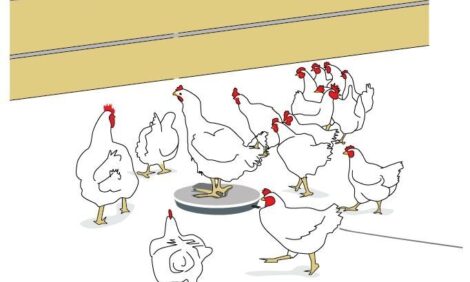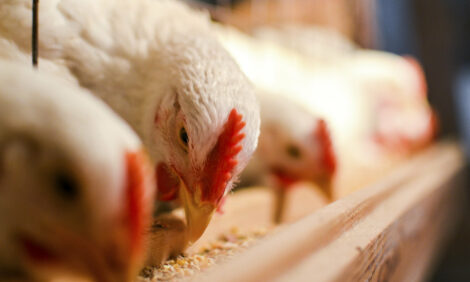



Coccidiosis in conventional flocks presenting a significant challenge
Coccidiosis is proving to be a significant challenge in conventional flocks, Suzanne Dougherty, DVM, Pilgrim’s, told Poultry Health Today.
Dougherty said she has seen more issues with coccidiosis recently in broilers and pullets than she’s ever seen before throughout her career in production. It’s definitely not specific to “no antibiotics ever” (NAE) production.
In fact, she thought NAE complexes would be her biggest challenge regarding coccidiosis, “and honestly, it’s been the exact opposite,” she said.
There’s been no seasonality to the problems with coccidiosis nor does it seem to be a regional issue. In addition, coccidiosis can present in different ways in different complexes.
“We really started seeing issues in the spring, and it just has been continuous regardless of the [preventive] programs we shift to. It’s been ongoing. I will say some programs have reduced the severity,” she said.
“We’re definitely still seeing that Eimeria tenella break around the 16- to 17-day time period — 15, 16, 17 — and then E. maxima around 17 to 18…We’ve had to do a lot of finagling,” she said. Different rotation programs have been tried and efforts have been made to get coccidiosis vaccination to work in a bioshuttle program.
Shifting microbiology?
In one conventional complex, necrotic enteritis has also been a problem. It’s probably secondary to coccidiosis, but that can’t be said for certain, Dougherty continued. “I’m not sure if the microbiology has been shifting and some of the medications that used to work are no longer working.”
There’s another complex 1 hour away where coccidiosis is a problem but necrotic enteritis is not, demonstrating that the problem isn’t necessarily regional, she said.
The plan is to try some approaches to coccidiosis control that normally wouldn’t be used in a conventional production system. “Maybe try to treat them more like an NAE flock for a cycle or two,” Dougherty said.
“I think you have to be open-minded…You need to try different things and see what works. Just because it’s always worked there for years or that rotation has always worked, things change. The bugs are smarter than we are sometimes,” she said.












